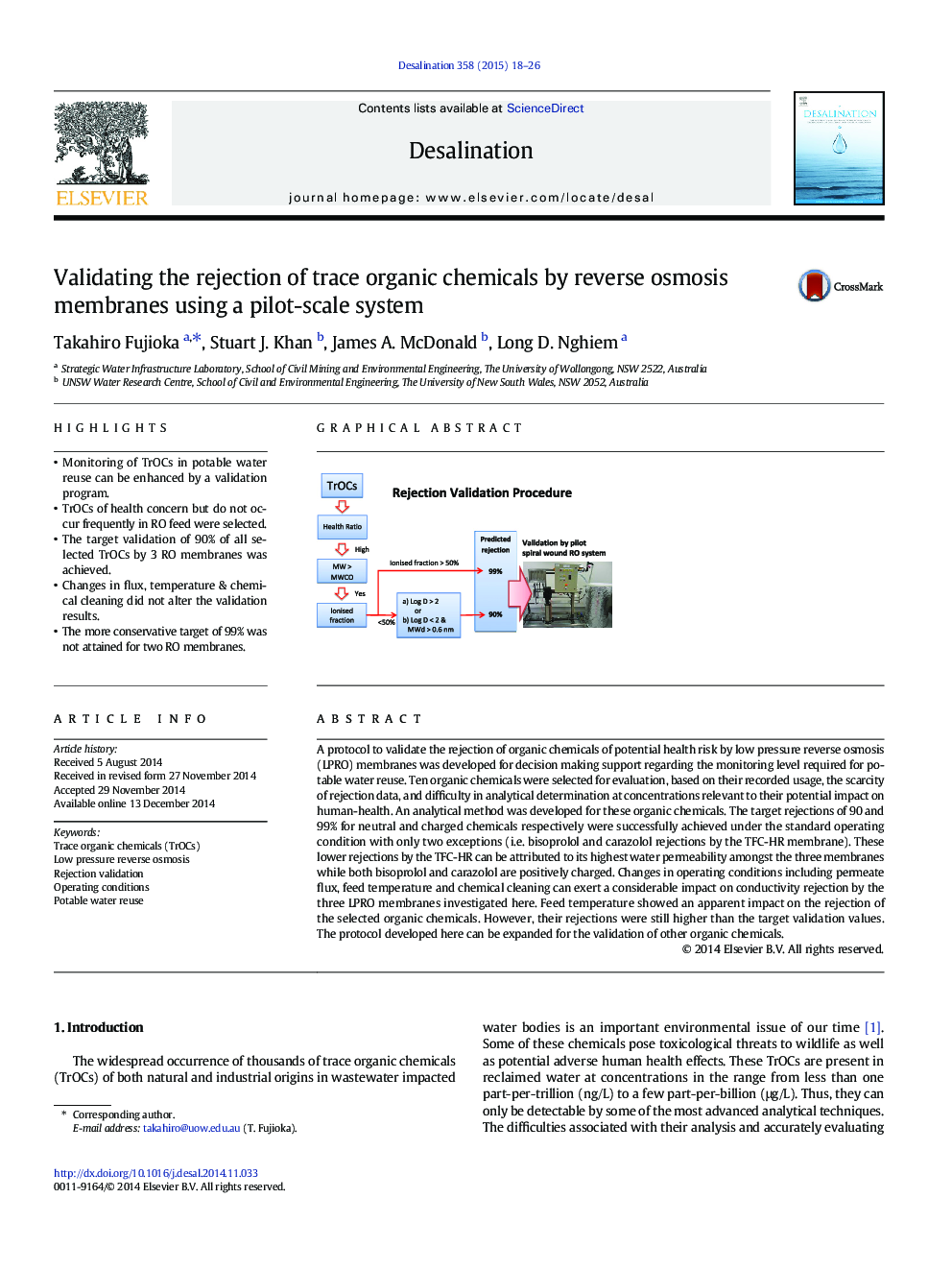| Article ID | Journal | Published Year | Pages | File Type |
|---|---|---|---|---|
| 623191 | Desalination | 2015 | 9 Pages |
•Monitoring of TrOCs in potable water reuse can be enhanced by a validation program.•TrOCs of health concern but do not occur frequently in RO feed were selected.•The target validation of 90% of all selected TrOCs by 3 RO membranes was achieved.•Changes in flux, temperature & chemical cleaning did not alter the validation results.•The more conservative target of 99% was not attained for two RO membranes.
A protocol to validate the rejection of organic chemicals of potential health risk by low pressure reverse osmosis (LPRO) membranes was developed for decision making support regarding the monitoring level required for potable water reuse. Ten organic chemicals were selected for evaluation, based on their recorded usage, the scarcity of rejection data, and difficulty in analytical determination at concentrations relevant to their potential impact on human-health. An analytical method was developed for these organic chemicals. The target rejections of 90 and 99% for neutral and charged chemicals respectively were successfully achieved under the standard operating condition with only two exceptions (i.e. bisoprolol and carazolol rejections by the TFC-HR membrane). These lower rejections by the TFC-HR can be attributed to its highest water permeability amongst the three membranes while both bisoprolol and carazolol are positively charged. Changes in operating conditions including permeate flux, feed temperature and chemical cleaning can exert a considerable impact on conductivity rejection by the three LPRO membranes investigated here. Feed temperature showed an apparent impact on the rejection of the selected organic chemicals. However, their rejections were still higher than the target validation values. The protocol developed here can be expanded for the validation of other organic chemicals.
Graphical abstractFigure optionsDownload full-size imageDownload as PowerPoint slide
